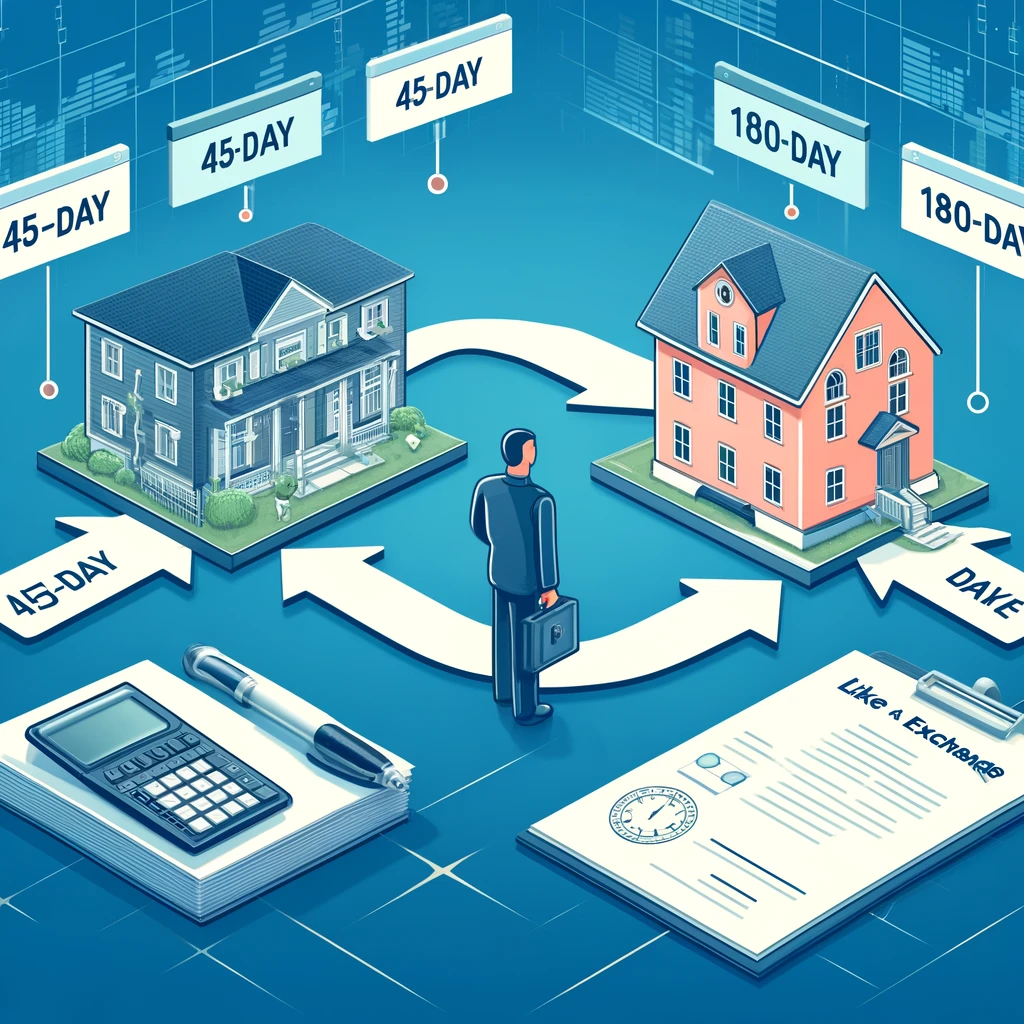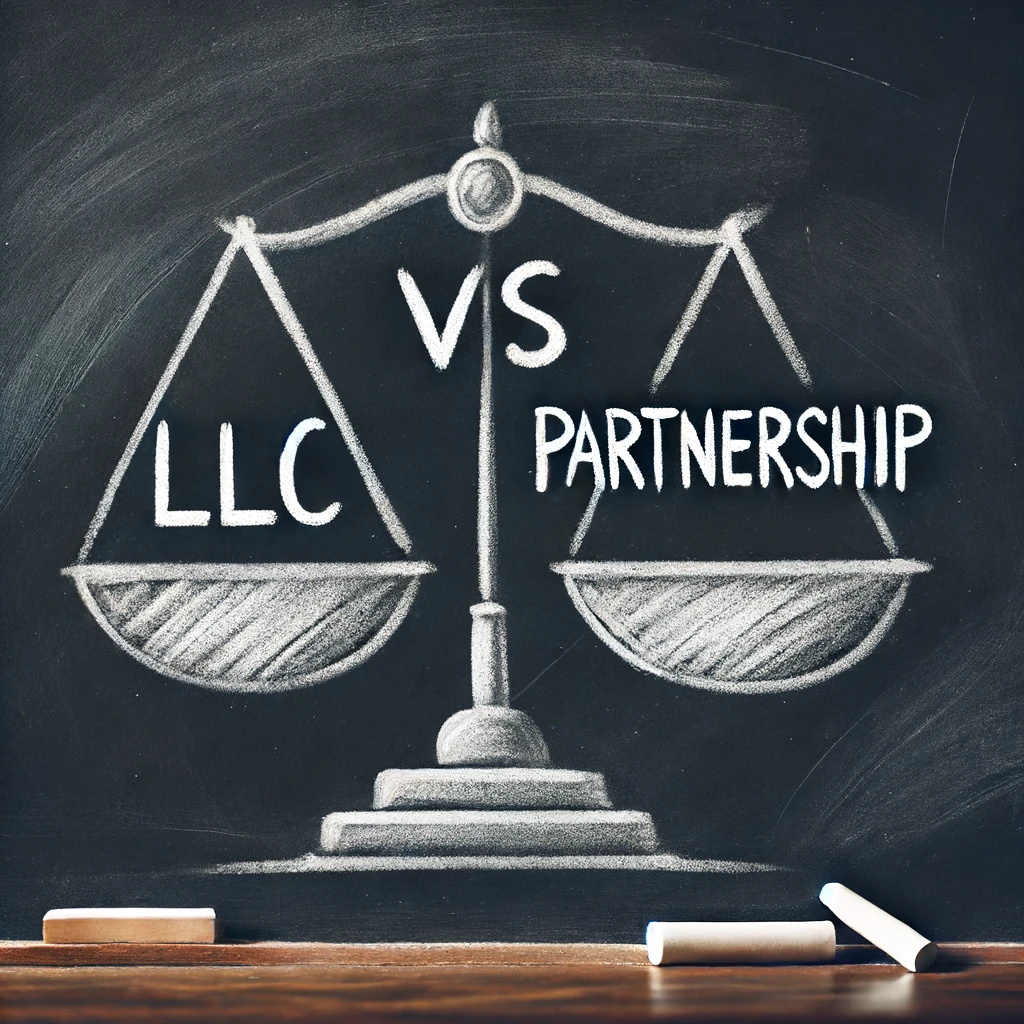Understanding Like-Kind Exchanges: A Powerful Tool for Real Estate Investors
For real estate investors looking to defer capital gains taxes and build wealth, the like-kind exchange (also known as a 1031 exchange) is an invaluable tool. Named after Section 1031 of the Internal Revenue Code, a like-kind exchange allows investors to swap one investment property for another while deferring capital gains taxes. In this blog, we’ll explore what a like-kind exchange is, how it works, the benefits, and the requirements for a successful exchange.
What is a Like-Kind Exchange?
A like-kind exchange, or 1031 exchange, is a tax-deferred transaction that allows real estate investors to sell a property and reinvest the proceeds in a new property of a similar kind, without immediately paying capital gains taxes. The term “like-kind” refers to the nature or character of the property, not its grade or quality. For example, you can exchange a rental property for another rental property, a commercial building, or even raw land.
How Does a Like-Kind Exchange Work?
To successfully complete a like-kind exchange, investors must follow specific steps and meet certain criteria:
- Identify the Property to be Exchanged: Determine which property you intend to sell and identify potential replacement properties.
- Hire a Qualified Intermediary: You must use a qualified intermediary (QI) to facilitate the exchange. The QI holds the proceeds from the sale of the relinquished property and uses them to purchase the replacement property. You cannot have direct access to the proceeds.
- Sell the Relinquished Property: Once you sell your property, the proceeds go to the QI, not directly to you.
- Identify Replacement Property: You have 45 days from the sale of your property to identify up to three potential replacement properties. You must do this in writing and submit it to your QI.
- Purchase the Replacement Property: You have 180 days from the sale of your original property to close on the replacement property. The QI will use the proceeds to buy the new property on your behalf.
Benefits of a Like-Kind Exchange
- Tax Deferral: The most significant benefit is the deferral of capital gains taxes, which allows you to reinvest the full proceeds from your sale into a new property, thereby increasing your investment potential.
- Increased Buying Power: By deferring taxes, you can leverage more equity for your next investment, enabling you to purchase a more valuable property or diversify your investments.
- Wealth Accumulation: Continually deferring taxes through successive 1031 exchanges can significantly enhance your ability to build wealth over time.
- Estate Planning Benefits: If you hold the property until your death, your heirs can inherit it with a stepped-up basis, potentially reducing capital gains taxes if they decide to sell.
Requirements and Rules
To ensure the transaction qualifies as a like-kind exchange, several key rules and requirements must be met:
- Property Must Be Like-Kind: The properties involved in the exchange must be of similar nature or character. This is broadly interpreted, so most real estate properties qualify as like-kind.
- Investment or Business Use: Both the relinquished property and the replacement property must be held for investment or used in a trade or business. Personal residences do not qualify.
- Timing Rules: Strict timelines must be adhered to: 45 days to identify potential replacement properties and 180 days to complete the purchase of the replacement property.
- Use of a Qualified Intermediary: You must use a QI to handle the transaction to avoid direct receipt of the sale proceeds.
- Equal or Greater Value: To fully defer capital gains taxes, the replacement property must be of equal or greater value, and all the proceeds from the sale must be reinvested.
- Debt Considerations: Any debt on the relinquished property must be replaced with an equal or greater amount of debt on the replacement property, or you must invest additional cash to offset the difference.
Potential Pitfalls
While a like-kind exchange offers many benefits, there are also potential pitfalls to be aware of:
- Identification Issues: Failing to identify replacement properties within the 45-day window can disqualify the exchange.
- Qualified Intermediary Errors: Using an inexperienced or unqualified intermediary can lead to complications or disqualification of the exchange.
- Complex Rules: The IRS has specific and complex rules for like-kind exchanges, and any misstep can result in the disqualification of the tax deferral benefits.
Conclusion
A like-kind exchange is a powerful strategy for real estate investors seeking to defer capital gains taxes and build wealth. By understanding the rules, benefits, and potential pitfalls, you can make informed decisions and leverage this tool to maximize your investment potential. For personalized advice and assistance with like-kind exchanges, contact our office today.





Leave a Reply